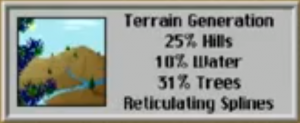Brain Hack 2017!
The UO site for Brainhack Global is being organized by Kate Mills, a post-doc in the Developmental Social Neuroscience lab (along with help from many others). Don’t let the Brain in Brainhack fool you — this is an event for anyone who wants to work on programming, analysis, and data related to the study of brain, mind and behavior!
We are hosting a Brainhack on March 4-5 as part of a global initiative, and we are inviting you to join us save the date!
This event will bring together neuroscientists, psychologists, biologists, and computer scientists to collaborate on participant-directed projects related to open science, software, and data. Come with a project idea of your own, or just excitement to collaborate with others.
Brainhack Global 2017 will unite regional events occurring the same week at 40+ different sites. We are participating as the only site in Oregon.
If you’re interested in attending and want to receive updates on Brainhack 2017, please fill out this form.
We hope to see you there!
Kate, Dani, John, Jenn, Theresa, Nandi and the rest of the DSN LabFAQ:
What’s going to happen at Brainhack?
Prior to our event, we will collect project ideas from attendees. Attendees can pitch project ideas to work on or join proposed project teams. We will all contribute to projects during times for open hacking and present our progress at the end of Brainhack. There will also be mini-unconferences, which are an opportunity to discuss topics of interest with other attendees, related to their areas of expertise.What kind of projects can I work on?
Current project pitches include contributing to open science programs, such as NeuroVault and Brain Imaging Data Structure Apps. We welcome any projects related to the study of the brain and/or behavior.I have a project idea! How can I let others know about it?
Great! Please fill out this form to let others know about your project idea! Since the event is only two days long, project pitches should be submitted here prior to the start of the event so that we can hit the ground running.I don’t have a project idea. What should I do?
It’s okay if you don’t have a project idea of your own, because other projects will need your skills and support. Take a look at this spreadsheet to look at current project ideas. All skills are valued at a Brainhack–you can always be a beta tester!I don’t have a background in neuroscience -and/or- I don’t have strong programming skills. Can I still attend?
Yes! All are welcome. The purpose of Brainhack is to bring together people with different skills to learn from one another.
